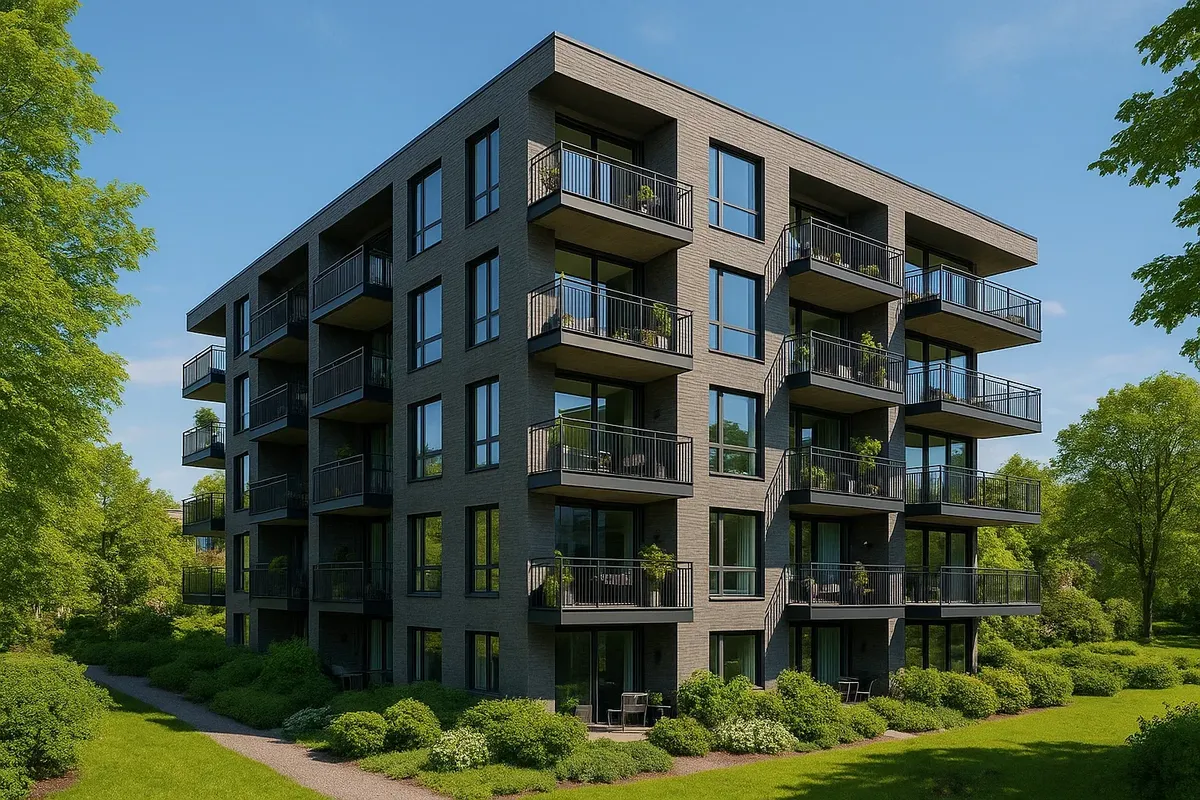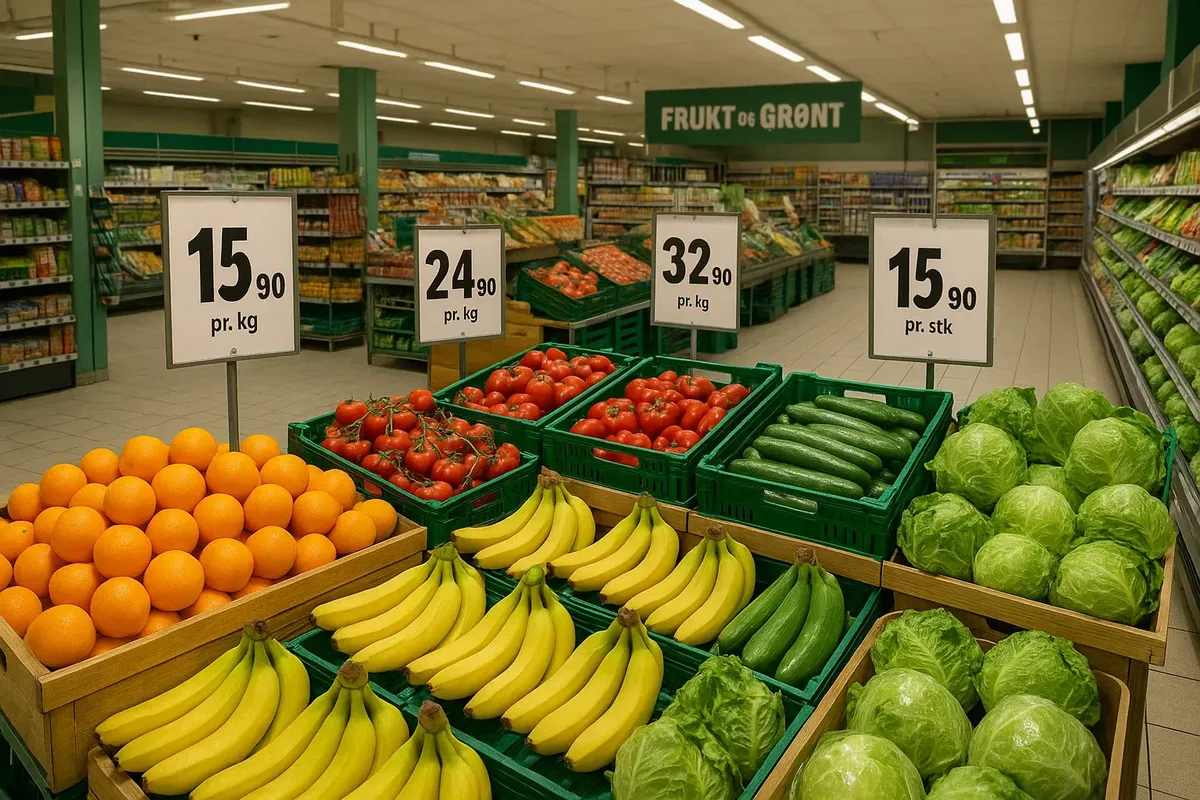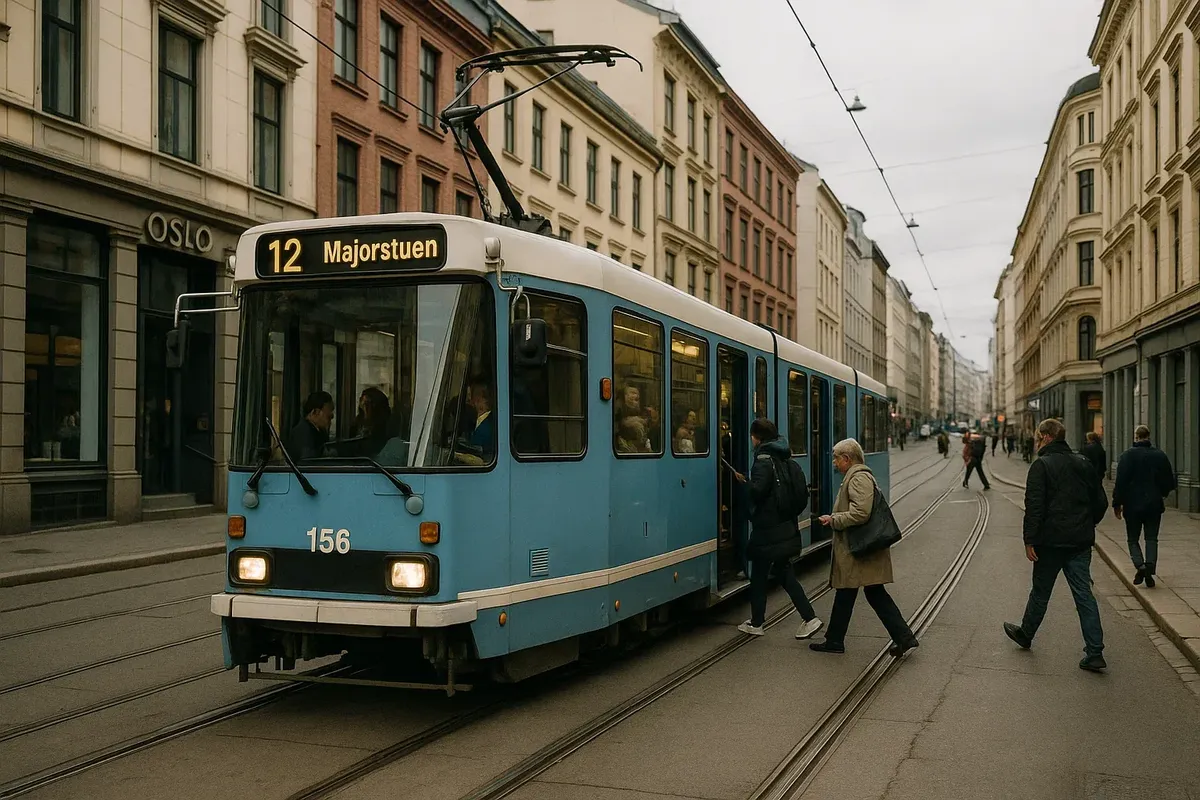🏡 Moving to Norway: how much does it cost to live as an expat and how to optimise your expenses (2026 guide)
Norway is a beautiful place to live, with a high standard of living and stability. It's a shame that the high cost of living puts many people off, even before they've had a chance to pack their bags and make the move! The actual costs of moving and settling in depend on how well you know the ins and outs: things like rent, taxes, health insurance, food, transport and utilities. To make things easier, we've compiled a list of the 10 most frequently asked questions, the latest figures for 2026, and some practical tips to help you live in Oslo for less than you would in Berlin or Paris.
🏠 How much does it cost to rent an apartment in Oslo and other cities?
The average rent for a one-bedroom apartment in Oslo in 2026 is 12,500 kr/month, but you can find something for as little as 9,500 kr in Grorud or Alna (20 minutes to the centre by metro). Hey, just so you know, the average rent in Bergen is around 9,900 kr a month, and in Trondheim it's about 9,400 kr. The deposit is normally two months' rent, but don't worry, that's usually easy to save up for! Here's a little life hack for you: if you're planning a visit, it's a good idea to book in advance. During the summer months, the market can get really busy with students, so it's best to make sure you get your booking in advance to avoid any disappointment. I totally understand that a long-term contract (1 year+) is a big commitment, but I'm happy to offer a price reduction of 5–10% to encourage you to stay. And don't forget to check what utilities are included (like electricity, water, and Wi-Fi), as this can save you another 700 kr/month.

🔌 How much do utilities and internet cost?
I totally get it, the average utility costs for a one-bedroom flat are 1,250 kr/month: electricity (strøm) 600 kr, heating (fjernvarme) 300 kr, water and sewerage 250 kr, rubbish collection 100 kr. Hey, just so you know, the 300 Mbps internet package is going for 379 kr a month if you go with Altibox. TV is separate — from 250 kr/month, but many people get by with Netflix for 139 kr, which is really cheap! Here's a little life hack for you: most apartments in Sweden are rented with internet and water included, which is great as it reduces expenses by about 500 kr.
🥦 Cost of groceries: how much should you budget for food?
The average monthly budget for groceries in Norway is 3,400 kr/person, which is really reasonable when you think about it. That's for people with moderate habits, though. Here's a lovely weekly shopping list from Kiwi:
- Meat – 150 kr
- Vegetables – 200 kr
- Fish – 120 kr
- Dairy products – 180 kr
- Bread and cereals – 100 kr
- Coffee – 60 kr
I totally get it, we're all looking for ways to save a little extra cash, right? That's where discount apps like Too Good To Go and Æ from Rema 1000 come in. They can help you save up to 20%! Hey, if you love cooking at home and you're a savvy shopper, you can absolutely enjoy a delicious, high-quality meal for just 2,500 kr per month!

🚇 Transport: how much does a ticket cost and how can you save money?
A monthly Ruter travel card (Oslo, zone 1) will set you back 814 kr, while for Bergen (Skyss) it's 880 kr. A single ticket will set you back just 44 kr. If you don't travel much, you might find it worth buying a Flexus card with 10 trips for 360 kr. I totally get it, cars can be expensive, but in Oslo, you'll be looking at an average of 2,500 kr a month for petrol, parking, AutoPASS and insurance. Hey, I've got a little life hack for you: a monthly subscription for a bike or Bolt electric scooter only costs 499 kr! That's actually cheaper than public transport during the season.

🏥 Healthcare and insurance: what expenses should you definitely take into account?
You'll be pleased to know that basic healthcare is almost free for residents after egenandel (which is 316 kr for a doctor's appointment). There's a maximum egenandelstak of 3,240 kr per year, after which you won't have to pay anything. Hey, I just wanted to let you know that private health insurance (helseforsikring) is really affordable at only 390 kr/month (Vertikal If). And here's the best part: you'll have access to a specialist within five days, which is super quick! The great news is that medicines are super affordable, ranging from just 39 kr to a maximum of 520 kr per prescription, depending on the medication. Hey, I just wanted to let you know that you can get an EHIC for free if you live here, and it'll help you save on medical costs in the EU.
📑 Taxes: what percentage do expats pay?
I'm happy to tell you that everyone, including our lovely expats, pays the same main income tax rate of 22%. And, on top of that, there's a progressive tax rate of 1.7% on income over 237,900 kr per year. We just want to let you know that your insurance contribution (trygdeavgift) is 8.2% for employees and 11.2% for freelancers. I totally understand where you're coming from, and I'm just so happy to be able to tell you that the average effective tax rate for an income of 600,000 kr/year is around 32%. Hey, here's a little life hack for you: if you're in the 109,950 kr/year bracket, you can use standard tax deductions to reduce your tax base.
💼 Salaries: how much do people earn in Norway?
I'm happy to tell you that the average pre-tax salary in 2026 is going to be 56,800 kr/month (682,000 kr/year). Hey, just so you know, in IT and engineering it's a bit higher, at around 800,000 kr a year. Nurses and teachers both do a vital job for our community, and we want to make sure they are fairly rewarded for their efforts. On average, nurses earn around 570,000 kr/year, while teachers earn 620,000 kr. There's no minimum wage, but you'll always get at least 190 kr for your hour of work. I totally understand that you're wondering how much money you need to earn to live comfortably in Oslo. Well, it depends on the amount of tax you pay, but generally speaking, you can expect to earn around 40,000 kr after tax.
🎭 How much should you budget for leisure and entertainment?
The average amount spent on leisure activities each month is around 1,500–2,000 kr. This includes things like going to the cinema (149 kr), having a coffee (120 kr), working out (390 kr) or going out clubbing (250 kr). Hey, I totally get it, we're all looking to save a little extra money where we can. Hey, I totally get it – you want to make the most of your trip without breaking the bank, right? Well, the Oslo Pass is the perfect solution! For just 499 kr, you get to explore all the museums you can dream of, with awesome discounts of up to 50%! Hey, why not join the FjordClean volunteering crew? We've got some awesome free tours and saunas up our sleeve! It's great to see so many people taking advantage of the free cultural programmes offered by municipalities and libraries, which can really help to reduce expenses to as low as 800 kr per month.
👕 Clothing, appliances and household goods: how much should you allocate?
And for clothing and footwear, you're looking at around 600–800 kr/month if you buy on sale or through Finn.no. Hey, I totally get it – we all need to save a little money where we can, right? And that's why I'm so excited to tell you about this awesome deal from Komplett.no! They're offering some incredible discounts of up to 25% on phones, laptops and household appliances. When you're moving home, it's always a big expense, but you can save 40% on Finn.no. The budget for household appliances and furniture is normally 5,000–7,000 kr, so you can really make your move that much easier!
📌 I was just wondering: do you know how much it costs to live in Oslo for one person per month?
| Expense Item | Kr/month |
|---|---|
| Apartment rent | 11,500 kr |
| Utilities and internet | 1,250 kr |
| Groceries and household needs | 3,400 kr |
| Transport | 814 kr |
| Leisure and entertainment | 1,500 kr |
| Healthcare and insurance | 390 kr |
| Clothing and electronics | 700 kr |
| Total: | 19,554 kr (~€1,720) |
Moving to and living in Norway doesn't have to cost a fortune. You'll be happy to hear that the cost of living here is pretty similar to other European countries. If you plan ahead and shop smartly for food and appliances, you can make sure you're getting the best deals and using your government benefits and discounts. If you go about things the right way, you'll find your life in Norway is a happy, comfortable one, and you'll be able to budget your money too. Welcome to our beautiful country, Norge!




2 comments
Log in to leave a comment
Hva er det mest overraskende kostnadselementet for nye innflyttere som man ofte ikke tenker på? 💡